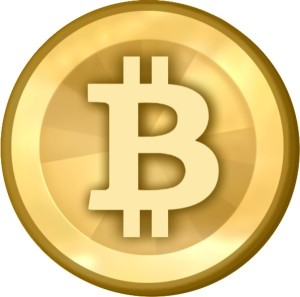The price of a single bitcoin reached US$1,000 Wednesday, demonstrating a new level of interest for the digital currency that earlier this year was trading for just $30.

Bitcoin trading surpassed the $1,000 mark on the Tokyo-based Mt. Gox exchange, one of the most prominent exchanges for buying and selling bitcoins online. High trading levels were also reached on BTC-E, a Bulgarian exchange, which hit $916 Wednesday night there, and Bitstamp, based in Slovenia, at $949, though prices on the exchanges change often in the course of a day.
On Mt. Gox, the price of a bitcoin teetered at just under $1,000 throughout Tuesday afternoon and early evening. Prices had been rising since the end of last week, when on Friday a bitcoin was worth a little more than $800 on Mt. Gox. Although the currency has seen serious growth over the past year, Bitcoin has also been characterised by dramatic volatility and major price swings from day to day.
There are no or very minimal transaction fees, and no central banking or regulatory authority backs it at this point, which makes it especially appealing to some people.
But describing its purpose is tricky, because some of its proponents see it both as an investment and a universal form of payment. With such big price surges, it’s easier to see Bitcoin as a kind of dot.com stock, but it’s harder to understand why merchants would accept such a fluctuating form of payment.
Still, the number of online retailers accepting Bitcoin payments has been growing. BitPay, an electronic payment processing company, says it’s now used by 12,000 merchants worldwide like Shopify and HostBill. Those businesses, though, do have the option of converting their Bitcoin payments into U.S. dollars or other currencies.
There do not seem to be any clear answers on why the price hit $1,000, a level that some might call arbitrary anyway. But some new support and demand for the currency may be helping to show that it’s here to stay, which could be boosting its value.
One big sign of change could be some recent talks in Washington, D.C., in which federal officials endorsed the currency’s potential benefits to the financial system and global commerce more broadly.
Bitcoin payments are designed to be made anonymously, so a dark shadow has also been cast over the currency for its ability to facilitate the purchase of illegal goods. But following the shutdown of Silk Road, an online marketplace for drugs and other illicit items including fake passports, some of those concerns may have been quelled.
Finally, China also seems to have taken a major interest in Bitcoin, possibly in an effort to drive down the value of the U.S. dollar.
All of those developments combined could be contributing to the rising price of bitcoins, experts said. The newfound support could give more hope to supporters who see bitcoins becoming more widely used in the future, said Jerry Brito, director of technology policy at the Mercatus Center at George Mason University.
The Silk Road shutdown specifically cleared a major hurdle, said Rob Banagale, CEO and co-founder atGliph, which makes a messaging app that sends Bitcoin payments. Previously, a big perception hinged on the currency’s underground nature, he said, but maybe not so much anymore.
Currently, the small number of people using Bitcoin causes every trade to create dramatic swings, but as more people use it, things could stabilise, Brito said.
But the volatility will probably continue. “There will be a series of bubbles going up and down,” Brito said, “until Bitcoin either stabilises or crashes.”





